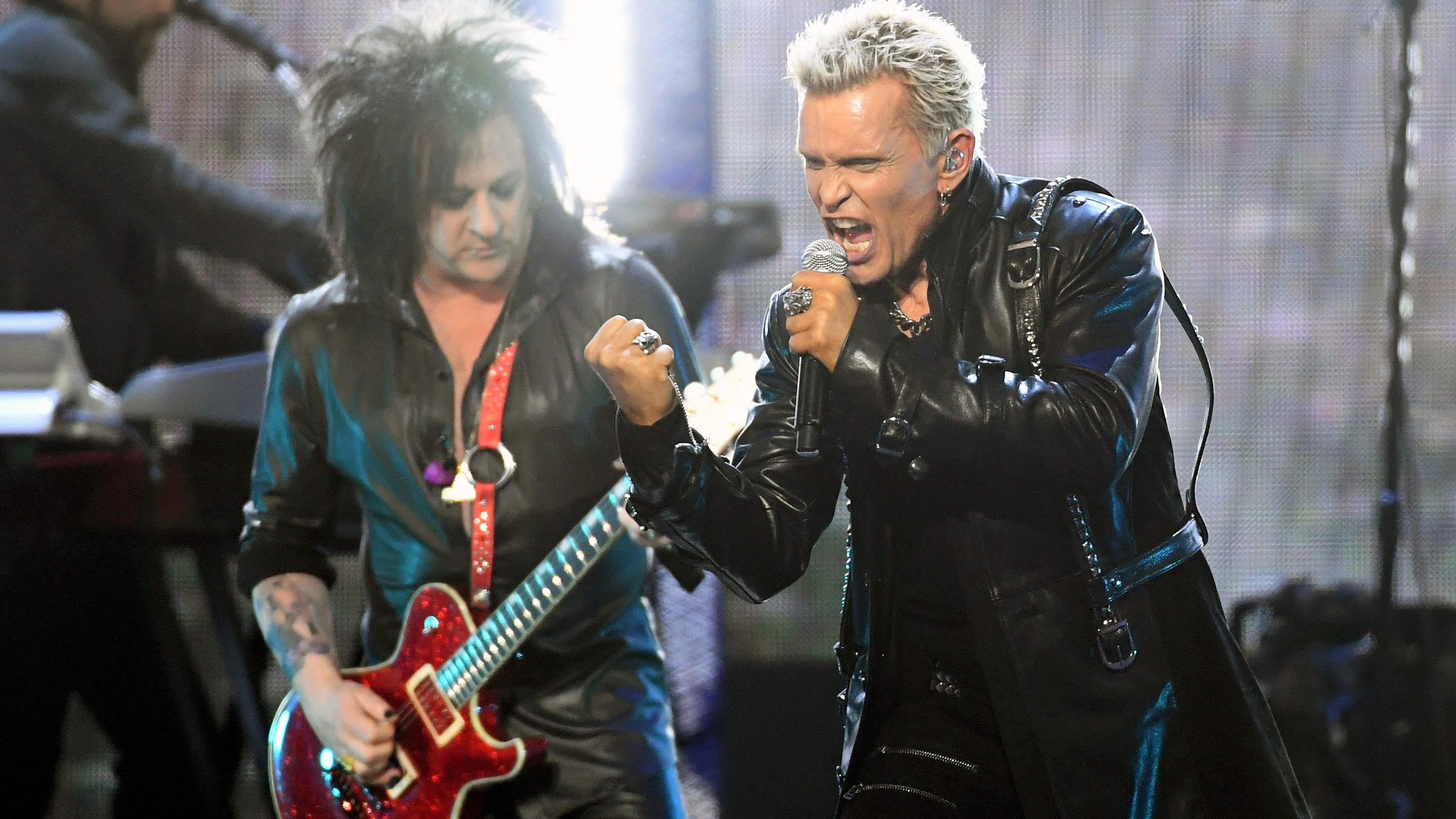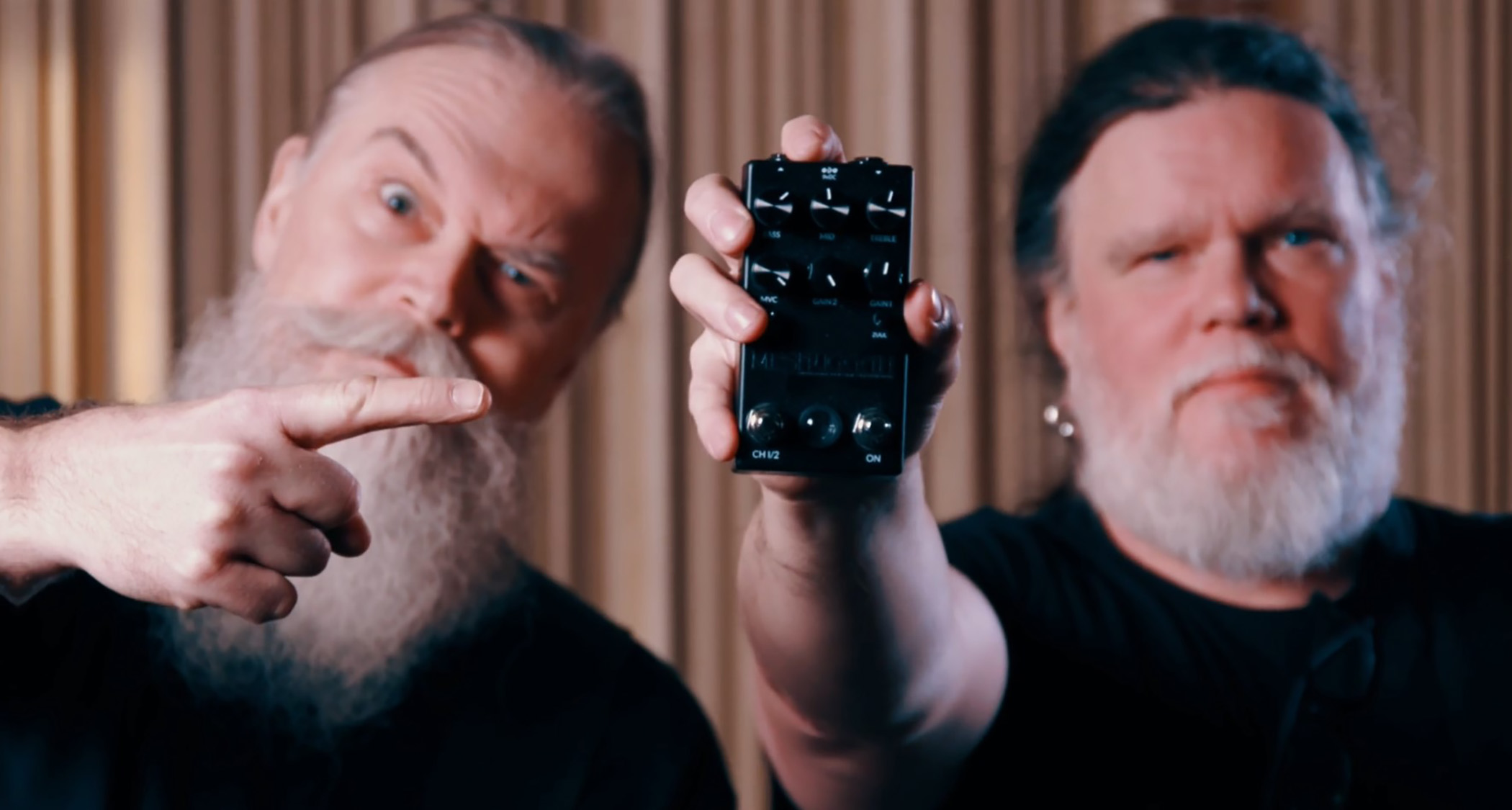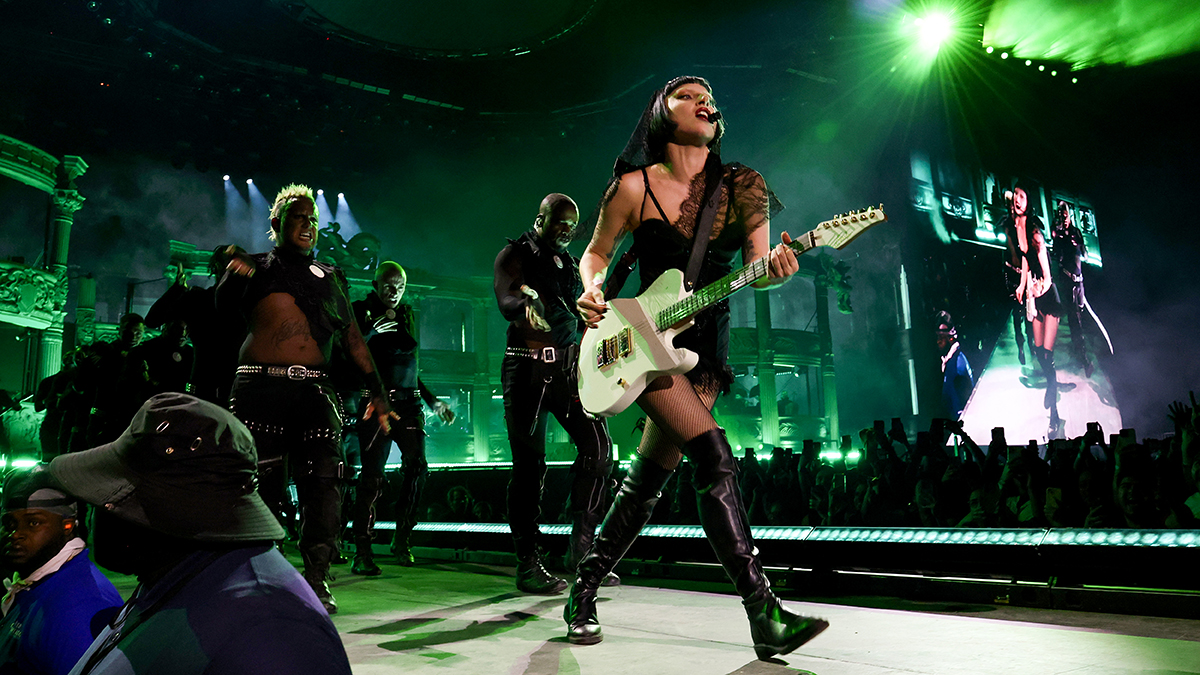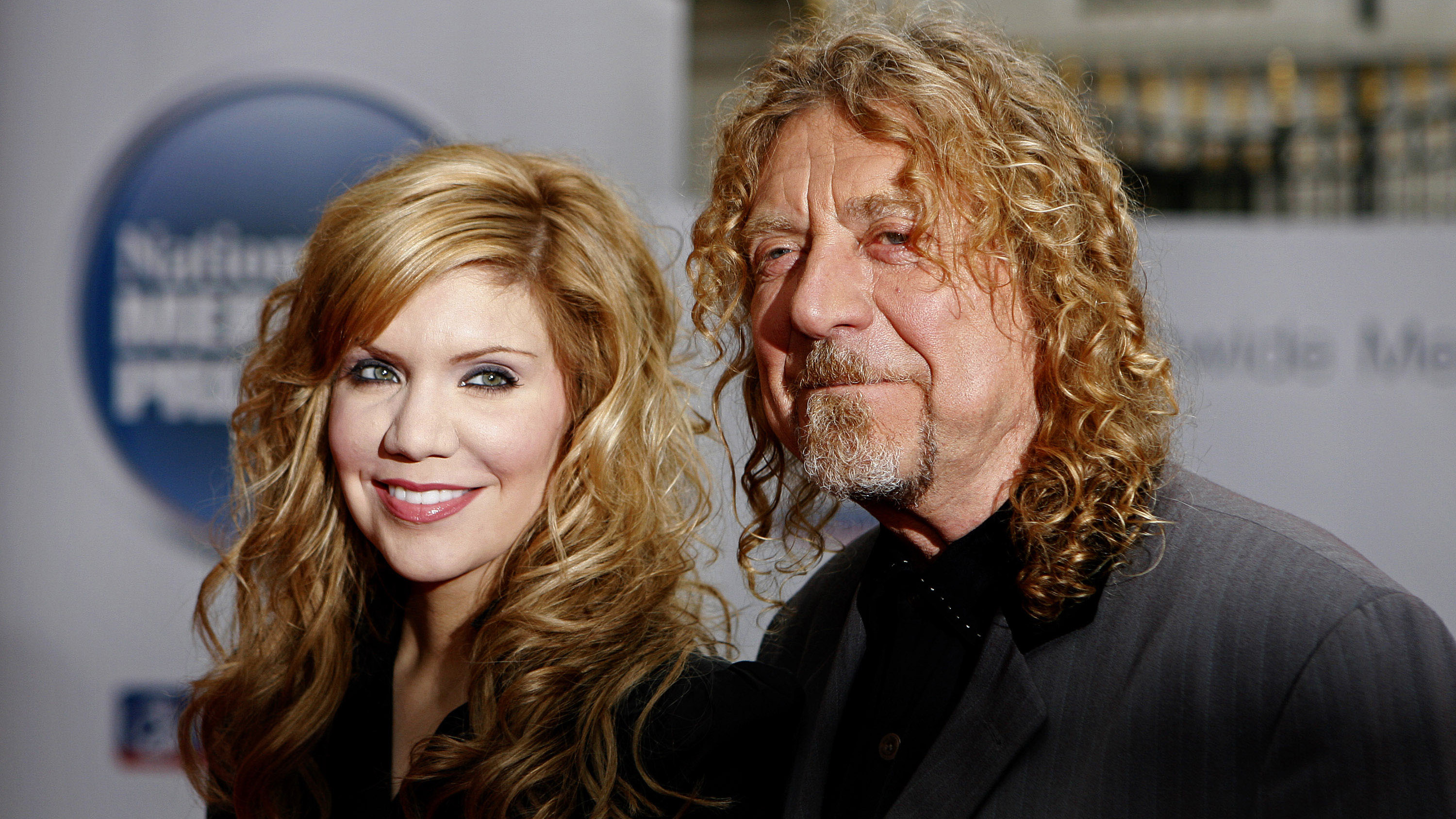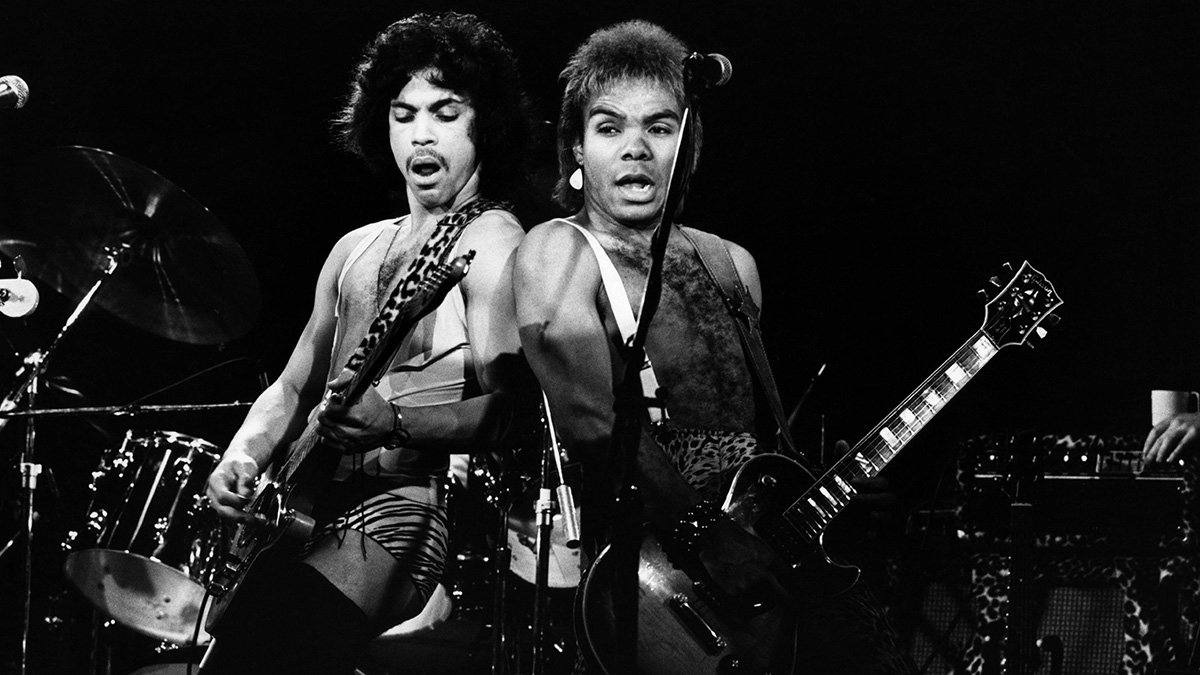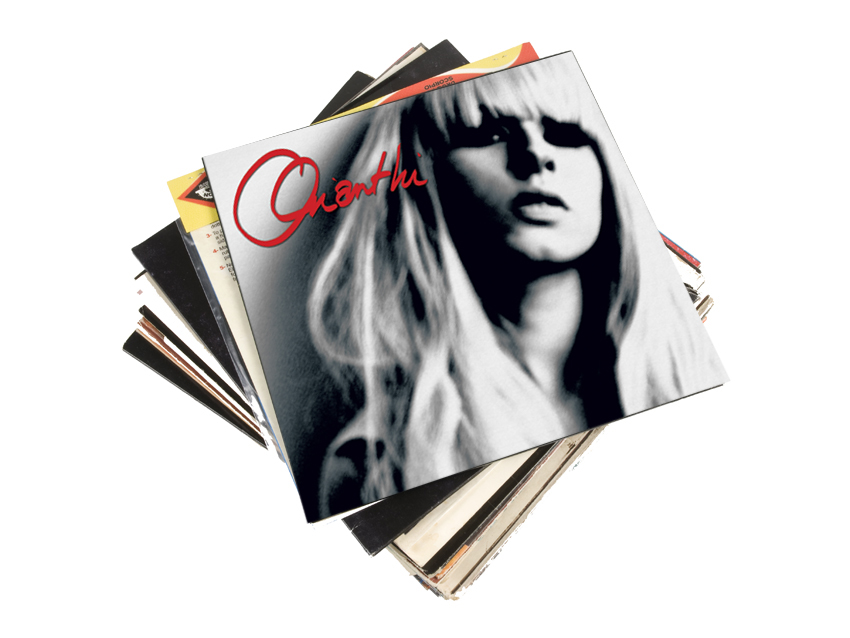
Orianthi discusses her new album, Heaven In This Hell, track-by-track
Geographically, Nashville is a long way from Australia, but for the Adelaide-born singer-songwriter and guitarist Orianthi Panagaris, the swampy vibe of Music City’s Blackbird Studios felt like a home away from home when she cut her new album, Heaven In This Hell, there with producer Dave Stewart and a host of the town’s ace players.
“I just fell in love with the whole vibe," says Orianthi. "Dave, the musicians, everybody at Blackbird – the people were so welcoming and encouraging. I was really intrigued by the idea of recording in this big room with everybody.”
The collaboration between Orianthi and Stewart started a few years ago – Stewart had acted as musical director for a Stand Up To Cancer benefit concert, during which Orianthi guested. "We became friends after that," says Stewart. "It didn’t have anything to do with making an album. We started to jam together on acoustic guitars mainly, but we did plug in electrics. I played her all of these blues records, and things just happened very naturally."
Main tracking sessions for Heaven In This Hell were held last year at Blackbird, with Orianthi recording live with many of the same musicians (namely guitarists Tom Bukovac and Dan Dugmore, bassist Michael Rhodes and drummer Chad Cromwell) that Stewart had worked with on his albums The Blackbird Diaries and The Ringmaster General.
“Everybody was just at the top of their game," Orianthi raves. "The energy that came out of them was incredible. The atmosphere was very free. Some people try to push you one way or the other, but Dave wants you to go with your gut. He makes trusting yourself easy. Anything that comes to mind, if it’s good, Dave wants to try it – he’s not boxed in."
Orianthi's 2009 debut album, Believe, leaned heavily on pop-rock with heaping dozes of dazzling metal shred guitar. On Heaven In This Hell, Stewart encouraged Orianthi to explore her love of blues and country, even melding the two genres together within the same song.
“She’s one of those blues-rock guitar players who is housed inside a young girl’s body and mind," says Stewart. "The funny thing is, when you hear her, you can tell that she has the soul of an old blues guitarist. I thought that was really cool and exciting. I like people who have an old soul in them. You don’t have to explain things to them. They’re trying to do something that isn’t trivial; they want to do something great. It’s a burning ambition inside of them. Orianthi has that."
For Orianthi, dovetailing blues and country with pop and rock came easily, and she sees the songs on Heaven In This Hell as "me going back to my roots with blues and rock. This is the kind of material I hope to be playing for the next 30 or 40 years. I'm so glad I got a chance to make this record and that it came out so well."
Heaven In This Hell will be released on 12 March. (You can pre-order the album at this link.) On the following pages, Orianthi runs down the record track-by-track.
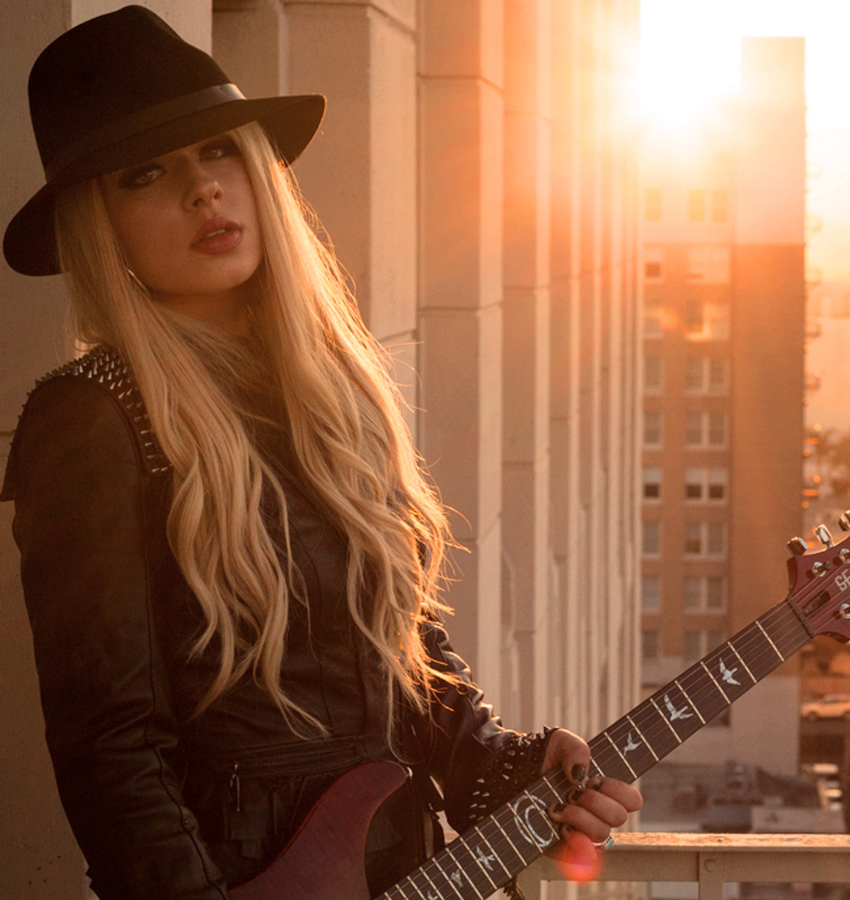
Heaven In This Hell
“I wrote the song with John Feldman from Goldfinger and also Gavin Brown and Dave. It was a swampy idea that I brought in to Dave. He really liked it, but he suggested that we change around the chorus. It’s a great track to play live.
“I used a Cry Baby wah on the solo. I think I kept the first or second pass, which is what I usually do. If you go over your solos too much, they become sterile and overthought. You want a solo to be structured, a song within a song, but you want it to sound like it’s the first time you’re playing it, too.
“It was Dave’s idea to put the nylon-string acoustic at the end. ‘Let’s take it to heaven,’ he said. He wanted it to float. I used an Alvarez classical for that part.”
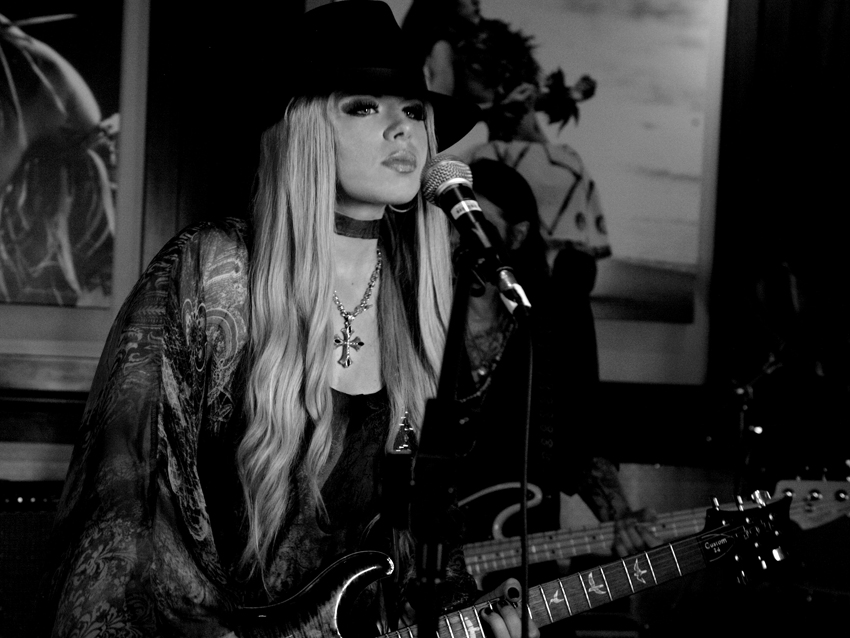
You Don't Wanna Know
“I wrote this song in Nashville with Zac Malloy and Clint Lagerberg. I had the riff, and then we came up with the lyrics about this guy who’s cheating. But then there’s the girl who’s doing the same thing, so it’s kind of like a ‘How would you feel if you found out?’ bit of a story.
“For the solo, I used my Custom 24 PRS through my EVH. I play banjo on the song, too. I’ve picked one up before and mucked around with it, but I never tried to play it seriously. I added banjo to give the song a bit of texture, and it worked.”
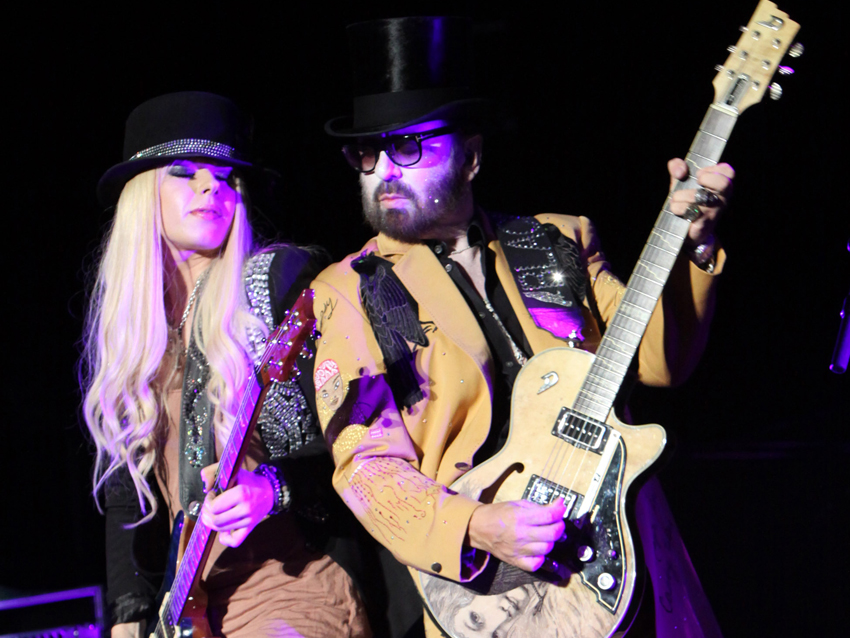
Fire
“I had the guitar riff, and I recorded a rough demo on GarageBand and brought it to Dave. Lyrically, it’s a story about running away from the blues. I’ve been playing electric guitar since I was 11, and I love the blues. All of my solos are blues based. Even though a lot of my songs get into pop, I wind up going back to the blues. Trying to escape it is like trying to run from the Devil.
“I’ve been listening to a lot of Robert Johnson, so I think he was in my head lyrically when the song was coming together. We recorded the track at Dave’s studio, and then we took it to Blackbird and put the live drums on it. Ann Marie [Calhoun] plays violin. She’s an amazing player. She toured with Steve Vai for a bit. I love what she did for this track.”
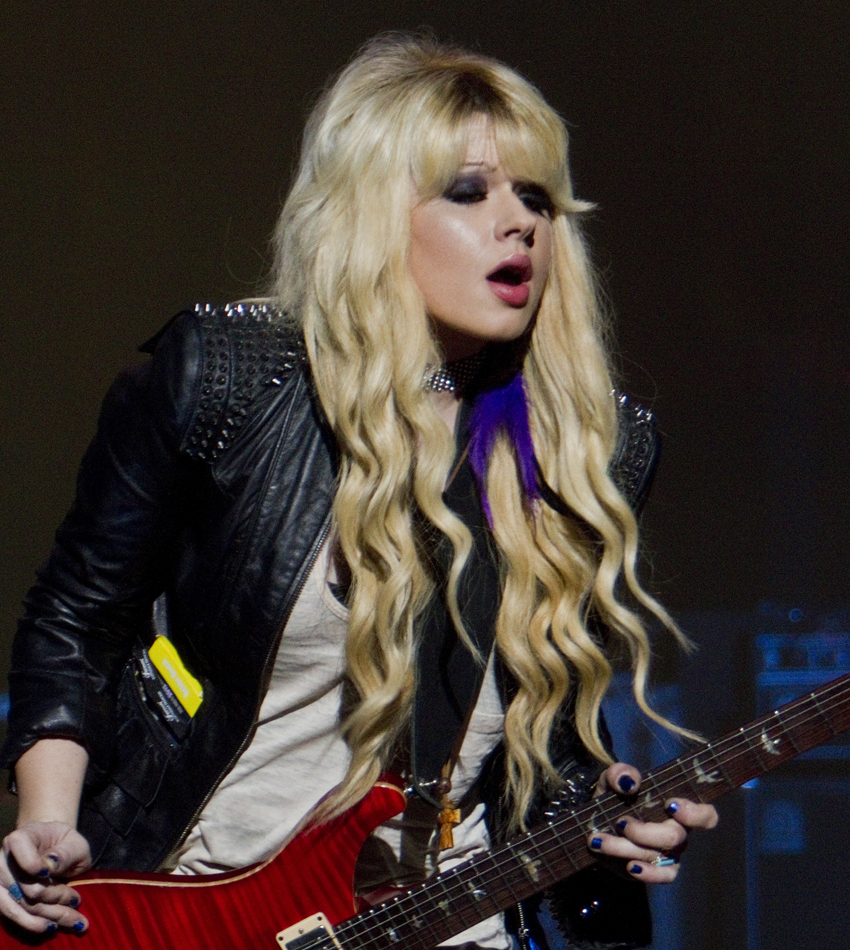
If U Think U Know Me
“We wrote this song on a porch with a couple of guitars. I came up with it as a song to play live, really. It’s sort of about the fans, the people who write to you and keep you going. When you play a show and you see people singing your lyrics back to, you feel as if they do know you. So it’s for them, the people in the audience.
“I put a lot of work into the vocals. I’ve been singing a lot more, and I feel as if I’m in a good comfort zone. I sang on my first album, but I didn’t really tour a lot before it. Making this record, I had a lot more experience singing live, and I think it shows.”
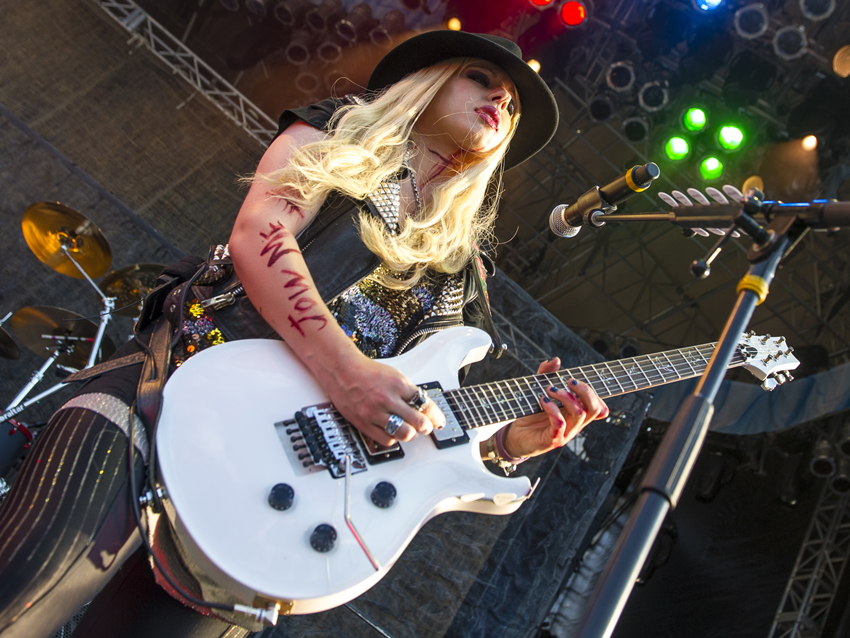
How Do You Sleep?
“I wrote the song on piano. Lyrically, it’s a true story. It’s about this guy… it's about getting hurt. Music can be therapy for me. I love getting letters from people or Facebook messages from them. They tell me that I’ve helped them through tough times, and so that gives you a lot of incentive to write.
“I used the PRS Custom 22 through a Fender amp at the beginning. I don’t really know what model the amp is, but it’s old. I love jamming out to this song – it’s one of the bluesier ones on the record.”
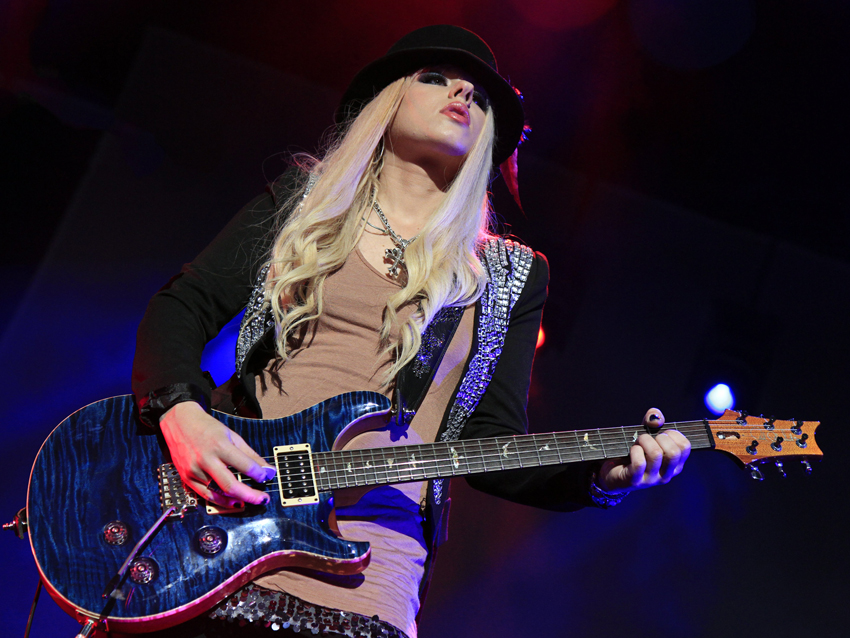
Frozen
“This song started out on an acoustic. I wrote it with Kevin Griffin here in LA, and we had a rapper on it. Then, when we went to record it, I thought it should be heavier, so I brought out my electric. I went to Dave’s studio and cranked it out.
“I played the bass on it, as well. It’s got a rocking Hendrix vibe to it. It sounds great when we play it live; we did it as a three piece not too long ago with Mike Campbell at NAMM.
“I grew up listening to Santana, Steve Vai and George Benson. There’s that bit where I sort of play along to the vocal – George Benson did that quite a bit.
“The song has Jimmy Z playing harmonica. Dave played me a video of him when he played with the Eurythmics. Jimmy would be so intense on stage that he sometimes needed oxygen after his performance. I told Dave that I wanted him to play on the record. I thought he would be this crazy, hyper guy like he was in the video, but he’s calmed down a lot now. It was something like 15 years since he and Dave saw each other. It was a blast having Jimmy on the song.”
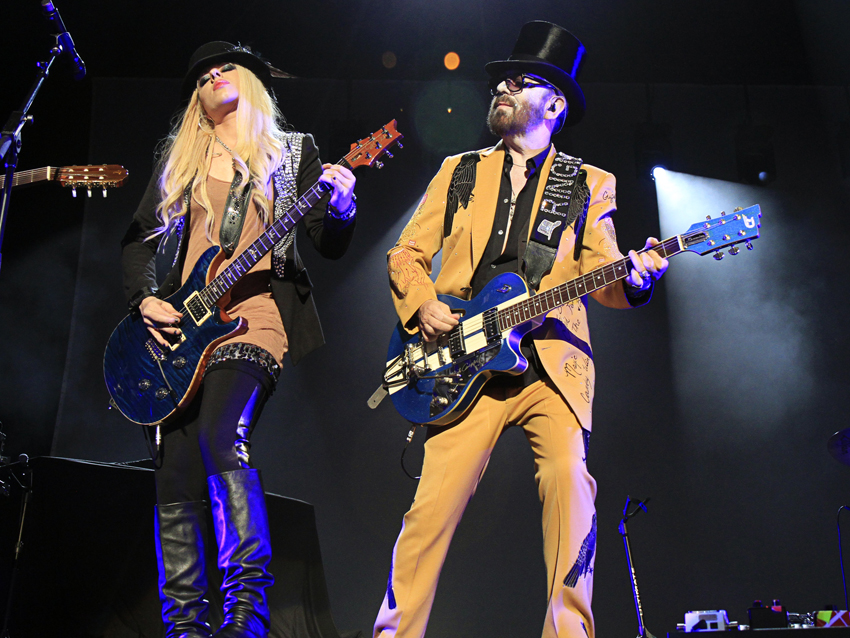
Rock
“I wrote the song out when I was sitting on a tour bus; I was on the road with Adam Lambert. I had the lyrics and the melody, but the intro was different; it had a heavy riff originally, bit it didn’t really fit the song. I changed it around, and it became more country.
“I played it for the Nashville guys, and they added an amazing bed of music to it. Dan Dugmore is such an unbelievable lap steel player. The song definitely feels better being country instead of this big ‘rahhhh!’ rock track. Lyrically, it fits better with the softer feel.
“I’ve been listening to country since I was about 15. I love the Rascal Flatts and Keith Urban. One of the things I like about country is how it’s always about telling great stories, and the quality of the music is first-rate. Country guitar players, too, are incredible – Brad Paisley is awesome.”
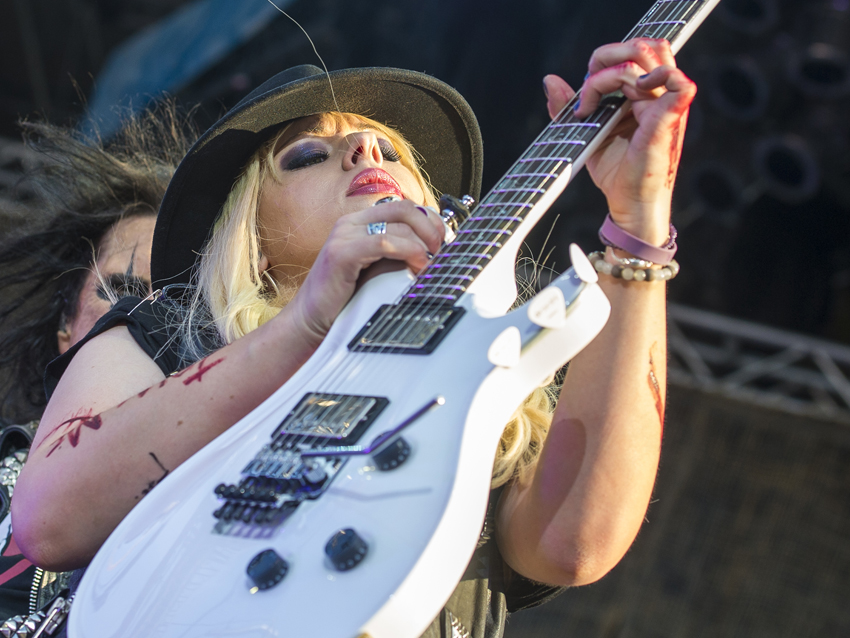
Another You
“I wrote this song Blair Daily and Bobbie Huff. Once I had the title, the lyrics and the music came really fast. It was one of those sessions where everything went right.
“It’s a love song, and I guess I approached the solo in a different way; it’s slower, not a shred thing at all. When I record a solo, I usually have the melody in my head. I try to find the melody on the guitar and see where it takes me. It depends on the day, really – some days it works, and other days it takes a lot of effort. This was on one of the good days.”
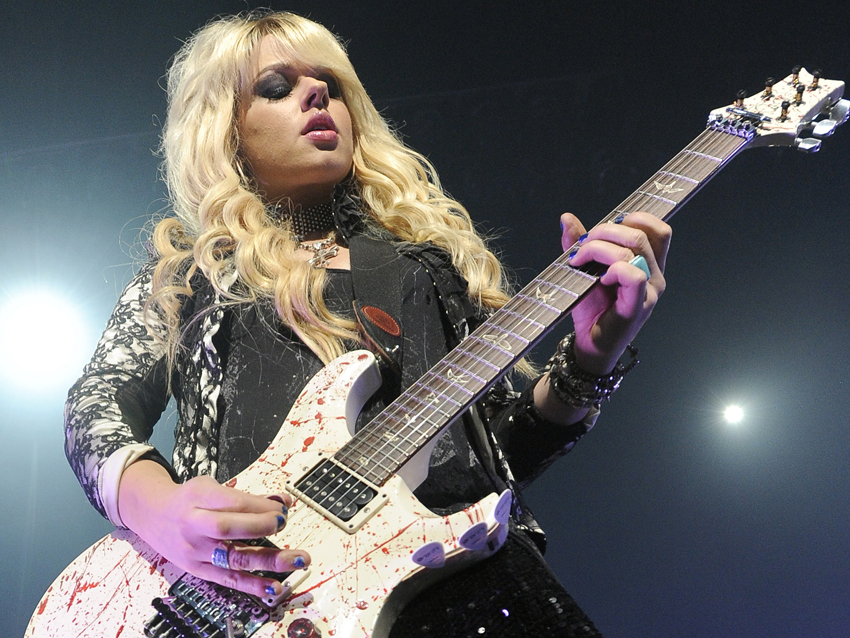
How Does That Feel?
“This is one of the first songs I did with Dave. We were just sitting on his porch with our acoustic guitars. I had the riff already, so we wrote out the words. It came out as a bit of an ‘FU’ kind of thing – ‘How does it feel now that I’m leaving you?’ Sometimes you’ve just had enough and you have to move on.
“It’s me singing about just playing the guitar – I’m going to be with my first love, and I don’t need anybody. The song flips in the middle: it starts out all bluesy, jazzy, a little R&B – the guitar tone is very warm – and then it goes into the rock for the solo, with the band kicking in.
“It was always the idea to have it be two songs, but I like how it’s an unexpected change. It’s great to play live.”
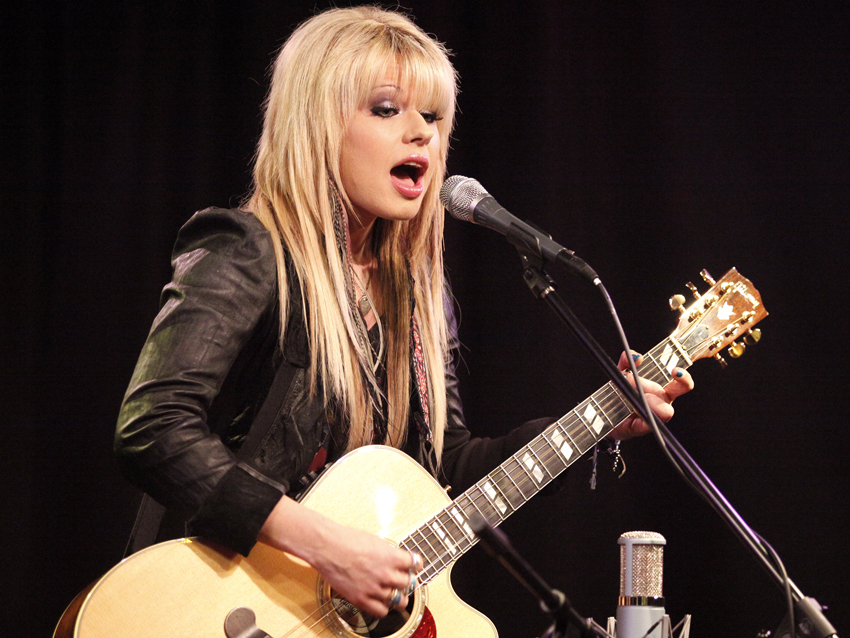
Filthy Blues
“We were sitting around, and we wanted to do something filthy and bluesy, and so there you go – Filthy Blues. [Laughs] I wanted it to be trippy, as well, so we experimented with sounds and came up with this cool musical treatment.
“The lyrics are about me being in a hotel room once again; I’m done with relationships and I’m just going to stay with my guitar. It’s a one-night stand with the filthy blues. It always comes back to the blues [laughs]. Music is the one constant I have in my life.
“I play one of Dave’s 12-string acoustics in the middle. I’m not sure of the brand, but it has ‘Rock Fabulous’ on the fretboard. It was always the idea to have the acoustic there and have it sound like me in my hotel room, just playing to myself. We were going for a Robert Johnson vibe.”
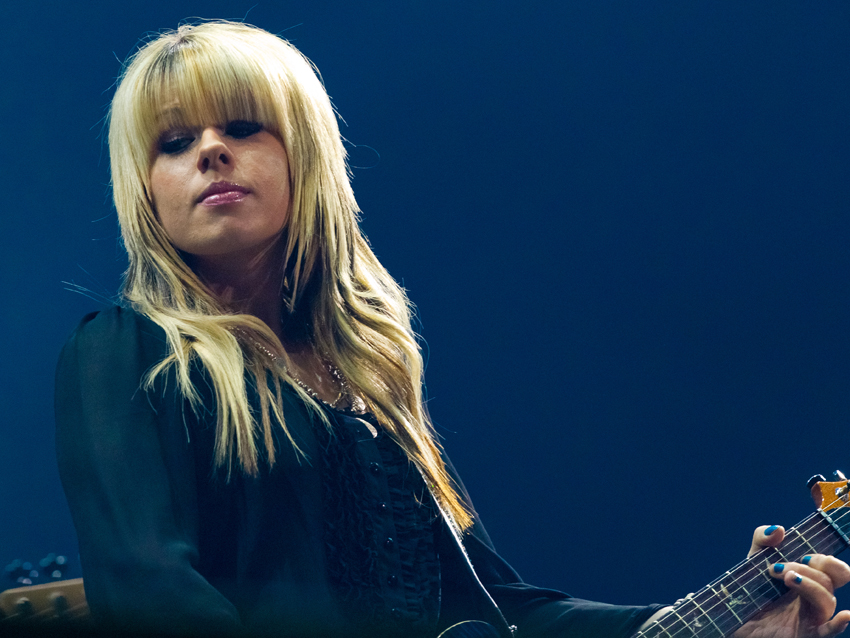
If U Were Here With Me
“I wrote this one on piano, as well, and demoed it on GarageBand. For the lyrics, I remember walking down the street and seeing this old couple holding hands. There were all of these young kids around them, and I just thought of how some love is temporary, especially with young people moving from person to person, but yet here’s this old couple, and their love is forever.
“It’s a hopeful song, and I definitely wanted that sentiment on the record. I didn’t want everything to be angry, where people would be like, ‘Oh, God, what’s wrong with her?’ [Laughs] I’m a pretty optimistic person, really. You get the hurt out, but then there’s the other side. You have to go with your feelings.
“How Do You Sleep? has the piano, so I wanted this one to be guitar. I used the old Fender ’59 Strat on it for the solo. Everything else was PRS. Tom Bukovac added some great parts, as well.
“It wasn’t the kind of song that called for a fast, distorted solo; I wanted it to be laid back and melodic. You have to vibe right to play the proper notes, so you just turn out the lights and chill out. I’m very happy with how it turned out. It goes with the music.”
Joe is a freelance journalist who has, over the past few decades, interviewed hundreds of guitarists for Guitar World, Guitar Player, MusicRadar and Classic Rock. He is also a former editor of Guitar World, contributing writer for Guitar Aficionado and VP of A&R for Island Records. He’s an enthusiastic guitarist, but he’s nowhere near the likes of the people he interviews. Surprisingly, his skills are more suited to the drums. If you need a drummer for your Beatles tribute band, look him up.
"At first the tension was unbelievable. Johnny was really cold, Dee Dee was OK but Joey was a sweetheart": The story of the Ramones' recording of Baby I Love You
"Reggae is more freeform than the blues. But more important, reggae is for everyone": Bob Marley and the Wailers' Catch a Fire, track-by-track
"At first the tension was unbelievable. Johnny was really cold, Dee Dee was OK but Joey was a sweetheart": The story of the Ramones' recording of Baby I Love You
"Reggae is more freeform than the blues. But more important, reggae is for everyone": Bob Marley and the Wailers' Catch a Fire, track-by-track

